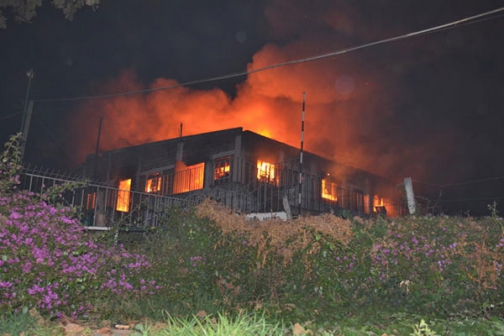
NAIROBI: The possible role of schools’ support staff in the fire crisis came into sharp focus yesterday as cases of arson continued to be reported. Education stakeholders who spoke to The Standard on Saturday yesterday said a lot of emphasis has been laid on students, principals and teachers with little attention on non-teaching staff.
“There is a missing link that we hope the investigating team will look into because no one knows how petrol is sneaked into schools,” said Janet Muthoni, Elimu Yetu Coalition national coordinator.